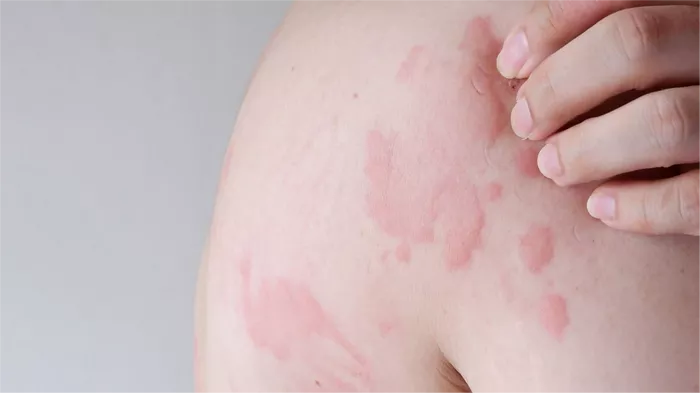Urticaria, commonly known as hives, is a skin condition characterized by red, raised, and itchy welts that appear suddenly on the skin. It can be triggered by various factors including allergies, infections, stress, or medications. The quest for effective treatments often leads individuals to explore dietary supplements like vitamin C, renowned for its immune-boosting and antioxidant properties. This article delves into the relationship between vitamin C and urticaria, examining the scientific evidence to understand whether vitamin C could offer relief for those suffering from this bothersome condition.
Understanding Urticaria
Before exploring the potential benefits of vitamin C, it’s important to grasp the nature of urticaria. This condition manifests as raised, itchy welts on the skin, varying in size and shape, often triggered by an immune response. Urticaria can be acute (lasting less than six weeks) or chronic (persisting for more than six weeks), with symptoms ranging from mild discomfort to severe distress.
The Role of Vitamin C in the Body
Vitamin C, also known as ascorbic acid, is a vital nutrient with diverse functions within the body. It serves as a potent antioxidant, combating oxidative stress and protecting cells from damage. Additionally, vitamin C plays a crucial role in supporting the immune system, promoting wound healing, and aiding collagen synthesis, which is essential for healthy skin.
Antioxidant Properties and Immune Function
The antioxidant properties of vitamin C make it a compelling candidate for managing urticaria. Oxidative stress is believed to contribute to inflammation in various skin conditions, including urticaria. By scavenging free radicals and reducing oxidative damage, vitamin C may help alleviate symptoms associated with this condition.
Furthermore, vitamin C is integral to immune function. It supports the production and function of white blood cells, enhancing the body’s ability to combat infections and allergens that could trigger urticaria. Strengthening the immune response may contribute to reducing the frequency and severity of hives.
Scientific Evidence on Vitamin C and Urticaria
Several studies have investigated the potential benefits of vitamin C in managing urticaria symptoms. While research is ongoing and sometimes inconclusive, there is evidence suggesting a positive impact:
1. Antioxidant Effects: A study published in the Journal of Clinical and Aesthetic Dermatology explored the use of antioxidants, including vitamin C, in chronic urticaria. Results indicated that antioxidant supplementation may reduce the severity and duration of urticaria episodes by mitigating oxidative stress.
2. Histamine Modulation: Vitamin C has been shown to modulate histamine levels in the body. Histamine is a chemical involved in allergic reactions and is a key player in triggering urticaria symptoms. By stabilizing mast cells (which release histamine), vitamin C may help prevent or reduce the intensity of hives.
3. Immune Regulation: Research published in the International Journal of Immunopathology and Pharmacology suggests that vitamin C supplementation can regulate immune responses and decrease inflammation associated with allergic conditions, potentially providing relief for individuals with chronic urticaria.
Recommended Dosage and Considerations
The recommended daily allowance (RDA) of vitamin C for adults is typically around 75 to 90 milligrams per day, although higher doses are often used in therapeutic settings. When considering vitamin C supplementation for urticaria management, it’s essential to consult with a healthcare professional. Excessive intake of vitamin C can lead to gastrointestinal upset or other adverse effects.
Conclusion
In conclusion, while further research is needed to definitively establish the efficacy of vitamin C in managing urticaria, the existing evidence suggests promising potential. Vitamin C’s antioxidant properties, immune-supporting effects, and ability to modulate histamine levels make it a compelling adjunct to conventional treatments for urticaria. For individuals seeking natural remedies to complement their urticaria management plan, vitamin C supplementation under medical supervision could be a valuable consideration. As with any health-related decision, consulting with a healthcare provider is paramount to ensure safety and efficacy.
In summary, the relationship between vitamin C and urticaria is a promising area of study, offering hope for those seeking alternative or complementary treatments for this bothersome condition.
Related Topics:


























